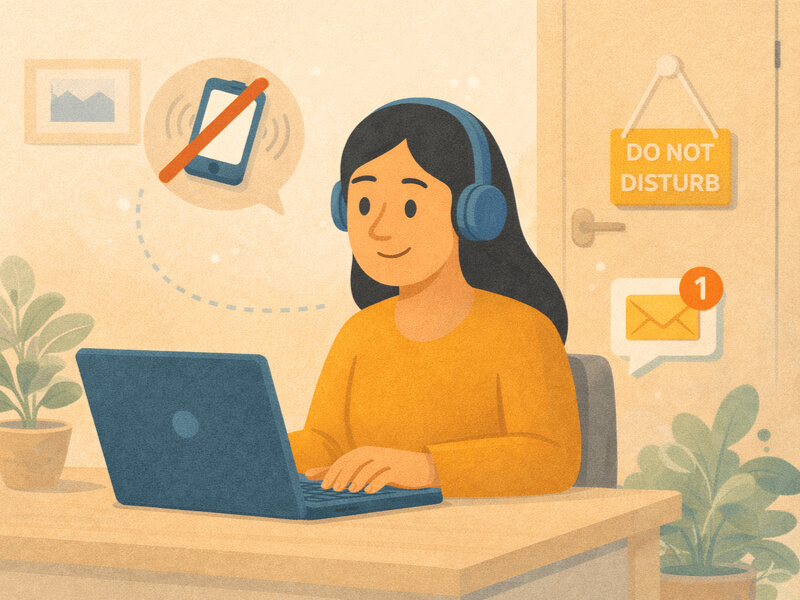
Interpersonal communication is a major and inescapable aspect of our lives. Nothing gets done without effective interpersonal communication. From huge organizations, corporations, and enterprises, all the way down to small businesses, families, and any relationship can’t operate or exist without it.
The thing is, a lot of people feel they can hold a conversation or send out an email, but many don’t communicate effectively. This is especially true when communicating in person. Advancing your career depends on your ability to communicate effectively. Most things in life become easier to obtain when you have good interpersonal communication skills. Because of this, it’s vital to understand how to improve your interpersonal communication skills.
What is Interpersonal Communication?
Interpersonal communication is the exchange of information between two or more people and involves verbal, non-verbal, including written communication. That means it isn’t simply about what’s spoken but includes your tone, word choice, and body language such as gestures, facial expressions, etc.
Mastering Interpersonal Communication Skills
Firstly, interpersonal communication begins when two or more people are aware of each other’s presence. People don’t have to speak to communicate and even the subtlest movement can mean communication is taking place.
In addition, interpersonal communication occurs even when we don’t intend to communicate (consciously and unconsciously). This is why being mindful and observant are important in interpersonal communication skills. Not only do they allow you to connect and collaborate better in the workplace, but they also help you stay aware of yourself and others so that you can continue to communicate in appropriate ways, even when you’re not speaking.
For example, your body language and or the way you carry yourself is often a way of communicating interpersonally. Something as simple as the way you stand, sit, or move your arms can have an effect on how well you can present, lead, or communicate an idea.
Interpersonal communication skills essentially cover all communication between people. So the next time someone asks, “How’s your interpersonal communication?” Know that they’re referring to your overall communication skills with regards to verbal, non-verbal, and written.
Types of Interpersonal Communication Skills
In general, there are seven types of interpersonal communication skills you should master to advance your career. These are verbal communication, non-verbal communication, listening, problem-solving, negotiation, decision-making, and assertiveness.
1. Verbal Communication
Verbal communication is when you’re using words to share information, whether spoken or written. Though most of us think of spoken words whenever we think about verbal communication.
Essential skills in verbal communication include but may not be limited to the following:
- The clarity in speaking
- Active listening
- Paraphrasing
- Reflecting
- Friendliness
- Thinking prior to a speech
- Carefully choosing your words
As you can see, there’s a whole list of useful interpersonal communication abilities for improving verbal communication. One important factor is how your word choice improves writing and speaking alike, helping your message sound clearer and more confident. Mastery of each of these abilities can be a powerful stepping stone to advancing your career and becoming your best self.
In fact, Matter makes this easier to do today because it allows you to get feedback near instantly. For example, you can record yourself talking or giving a speech and ask anyone for constructive feedback using Matter.
2. Nonverbal Communication
Nonverbal communication is the opposite of speaking verbally. This includes gestures, tone, facial expressions, body language, and others. For example, the pitch of your voice or even the distance between you and a person, are considered nonverbal communication.
But here’s the thing.
Effective in-person verbal communication always includes nonverbal communication. People naturally read your facial expression, body language, pay attention to tone, and others when engaged in communication. So it’s pretty much unavoidable.
To improve nonverbal communication, start paying closer attention to your conscious and unconscious nonverbal cues or signals (body language). Also, context influences and drives nonverbal communication.
For instance, nodding your head in a meeting while your boss is speaking can be a signal that you’re listening. But, the same action may be construed as meaning something else in another setting.
3. Active Listening
Listening is defined as being able to receive and interpret information accurately. Understanding others is the important point here, not necessarily knowing right away what the best response to what you hear will be.
Active listening is not “listening to respond”, but is instead a practice of listening to understand the full message being communicated—not just the words, but the whole issue being discussed. While “hearing” happens automatically, “active listening” requires silence, concentration, and your full attention. Not only does this help you understand and act accordingly, it also helps the speaker to feel more at ease and heard, which contributes to a better exchange.
This is a very critical interpersonal communication skill to master. It can make or break careers because not listening, or listening in ways that don’t lead to full understanding, is a sure-fire way of breaking down communication.
Also, the interpersonal communication skill of active listening is a primary business success driver. That’s why several companies provide training on effective listening as part of their onboarding process. Any organization that emphasizes the art of active listening can expect more customer satisfaction and fewer complaints, which increases overall ROI.
“The word listen contains the same letters as the word silent.”- Alfred Brendel, Austrian Pianist, Poet and Author
4. Problem-Solving and Decision Making
In one way or another, we’re all problem solvers but we don’t all have good problem-solving skills. Similarly, not everyone can soundly choose between two or more courses of action (decision-making).
Problems are encountered on a daily basis, whether at work or in our daily lives, we continuously solve small and big issues. And decision-making is inevitable when we engage situations that need resolution.
Naturally, employers want problem solvers that know how to make decisions, period. Practice the following to improve both.
- Good situational assessment or judgment.
- Learn to structure problems so you can easily interpret them.
- Resolution planning or strategize your approach to solving issues.
- Increasing your knowledge of the issue helps with problem-solving and decision-making.
Furthermore, learn to consider the implications or potential consequences of how you choose to solve particular problems. Consider how your solution might hurt others (aka Emotional IQ) and try to mitigate the risk involved before making a decision.
5. Empathy
Empathy is a subtle but powerful skill where a person can understand and share the feelings of others. While empathy is most commonly talked about in relationships, friendships, and situations outside of the workplace, it is very much present and vital within job settings as well.
Consider any team you’ve worked on in the past. Some teams may have been lacking in empathy, where the problems and stresses of individuals were left to them to figure out. Generally, teams that don’t share empathy are disjointed, siloed, and lacking in collaboration.
On the flip side, lots of teams operate from a more connected standpoint. As the team shares experiences, time, and work together they get to know each other better, and empathy is developed as the team members understand each other and their lives better. The teams that share this connection and care for each other tend to be more productive and happier in their work.
The difference is empathy, and it’s a skill that can be developed and shared in powerful ways. The more you actively develop empathy, the more quickly you can become an integral part of teams, solve real problems, and develop relationships with coworkers that are mutually beneficial and full of trust.
6. Assertiveness
Assertiveness means to hold your ground or stand up for what you know is true. That means you don’t passively agree or accept things that are wrong. For example, people who calmly stand up for themselves and other people’s rights in a positive way are assertive folks. Think of the late Nelson Mandela.
Mastering assertiveness will help you get your point calmly across in conversations without upsetting others. This is one of the most important interpersonal communication skills for leaders.
Self-confidence leads to assertiveness. Low self-esteem or lack of confidence causes passive and aggressive behaviors. In addition, being assertive means respecting the input of others too. Keep this in mind.
Additional Tips for Improving Your Interpersonal Communication Skills
Do the following to naturally improve your interpersonal communication skills:
- Adopt a positive outlook on life in general. Remind yourself of the good things you have going on and always look for the positive in situations.
- Acknowledge that you don’t know everything and maintain an open mind with regards to learning.
- Start controlling your emotions, never let it run wild, and practice expressing your feelings calmly.
- Show genuine interest in others when exchanging information with them.
- People that are empathetic score well with interpersonal communication skills. So practice empathy by imagining yourself in other people’s situation.
























